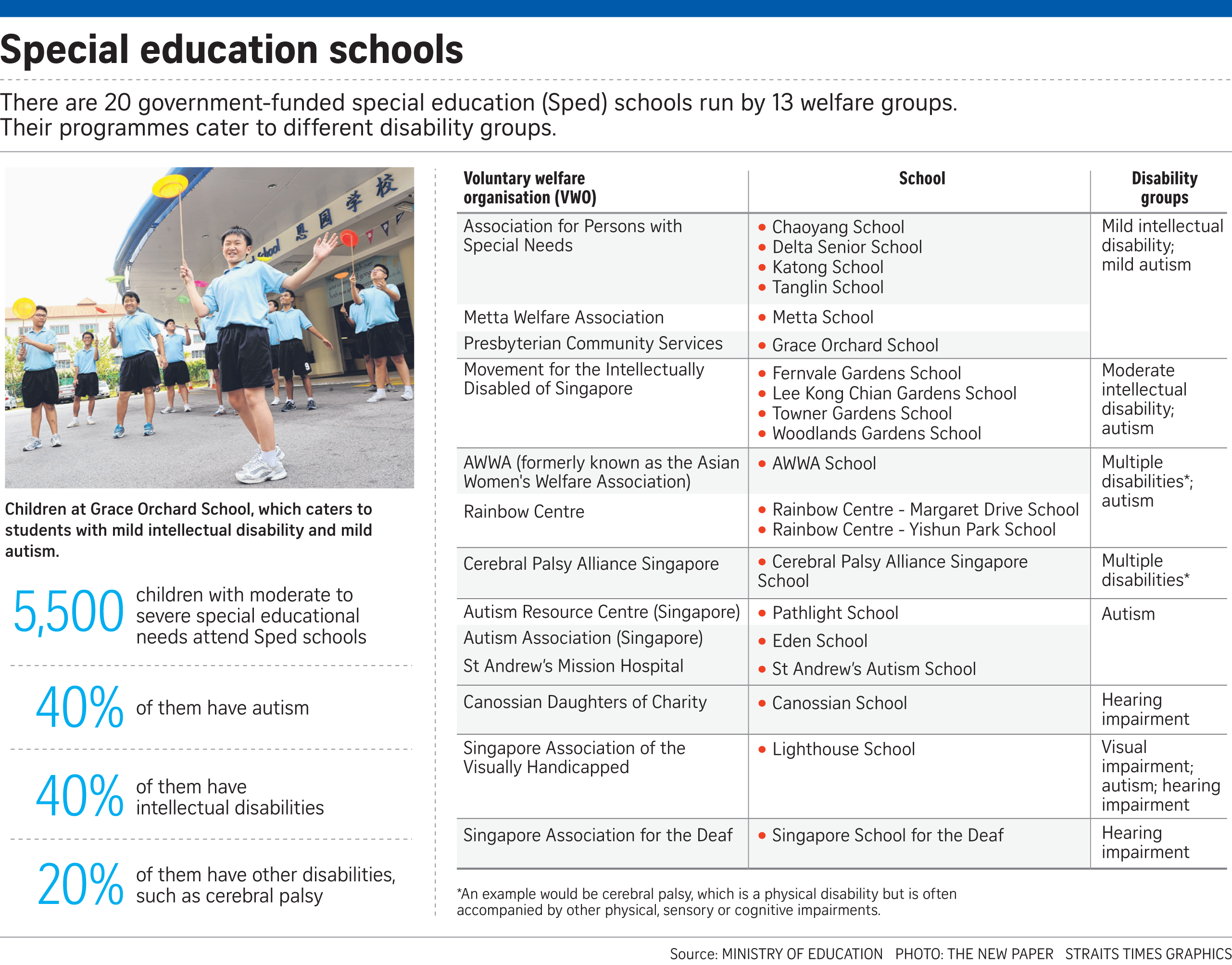In a move that fully includes special needs children in the education system, those with moderate to severe conditions will need to attend publicly-funded schools from 2019, just like all other children in Singapore.
The move to extend the Compulsory Education (CE) Act will take effect from the Primary 1 cohort just over two years from now – affecting those who turn seven then.
With the change, they will have to attend one of the 20 government-funded special education (Sped) schools, unless they obtain approval to be exempted. Primary 1 registration will begin in 2018.
Minister for Education (Schools) Ng Chee Meng, in announcing the new policy yesterday, called it “an important milestone in Singapore’s continuing drive towards national inclusiveness”. “This is a reaffirmation that every child matters, regardless of his or her learning challenges.”
Read also: MOE reassures parents who worry about lack of finances
The policy change comes nearly five years after it was recommended by a government-appointed panel, and the wait was to ensure Sped schools here had enough resources to support every special needs child.
Every cohort sees about 1,770 such children. Around 75 per cent have mild conditions such as dyslexia, which means they already come under the CE Act, and have to attend mainstream schools.

There are currently 18,000 students with mild special educational needs in mainstream schools.
The other quarter with more serious conditions such as autism, which number around 440 every year, do not have to go to school. But nearly all do so. Currently, 5,500 children with moderate and severe needs are in Sped schools.
Every year sees about 40 children who do not enrol, likely because of severe medical conditions, or whose parents prefer to homeschool them or send them to private schools. From 2019, this group will have to go through the public system, unless they can explain why they should not.
Read also: Learning life skills and resilience at Sped school
The CE Act, passed in 2000, requires all Singaporean children to complete six years of primary education in national schools before they turn 15. Parents can be fined up to $5,000 and/or jailed up to a year otherwise.
But Minister of State for Education Janil Puthucheary said: “CE doesn’t mean we’re going to force everybody to do one thing. We’re just going to do more in terms of including as many kids as possible into the education space.” He will chair a panel appointed by the Education Ministry to look into how best to put the policy into practice.
Asked why the policy is being changed only now, he said the Government had to be “confident” of being able to cater to every special needs child. And this has become possible “because of the good work… that has happened in the Sped sector”. From 2002 to 2012, 13 Sped schools were constructed and five others refurbished. There are now 1,000 Sped teachers, up by about 6 per cent since 2012.
Every one of the 20 Sped schools is run by a voluntary welfare organisation (VWO), and the VWOs have long been pushing for CE to be extended to special needs children.
MP Denise Phua, who is on the boards of the Pathlight School and Eden School for autistic children, said: “It ensures that every child has access to education opportunities, education being an important passport to a better life.”
In a Facebook post yesterday, Minister for Social and Family Development Tan Chuan-Jin called the change a huge step in making Singapore more inclusive and said it would “open up opportunities for continual learning, and employment” for special needs children.

This article was first published on Nov 05, 2016.
Get a copy of The Straits Times or go to straitstimes.com for more stories.







